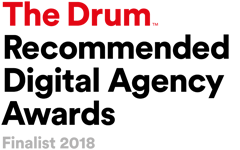We’ll answer the age-old question ‘is branding marketing’ by first providing definitions, then examples and how they are connected. In short however, no they are 2 separate things, but both MUST work together and support each other. In fact, they fall apart if not working in synergy. Here’s how…
Branding and marketing are two essential components to your business. They are heavily, intertwined and also heavily dependent on each other. In essence they are two different things, which require their own thought processes, plans and execution.
If you are starting a new business, or looking to grow an existing one, you may be considering investing in one or the other. Even if you have an existing brand, it’s not uncommon to look at rebranding. Perhaps you’re taking the business in a different direction, or just want to freshen up a dated look and feel.
Before we look at how branding and marketing work together, let’s look in depth at what each actually means.
What is branding and specifically, branding for business?
Your brand is the single most important investment you can make in your business.
Steve Forbes, Editor-in-Chief of business magazine Forbes.
Let’s start by looking at what branding for business is not. Branding is not just your logo. Branding isn’t just a static ‘one-off job’, it should evolve and grow. It’s not going to change every few months, it should be more meaningful and long-lasting than that. Branding is not purely ‘external looks’ and design.
Branding is about defining your company – including what it means to you as a team internally, as well as to external stakeholders (clients, customers, candidates). In loose terms – we can look at branding for business as ‘internal’ and ‘external’ factors.
Internal branding for business
It’s about who you are, your values, your mission, your ‘why’. It’s your voice. The experience the user has when interacting with your product or service. How it makes them feel. It’s emotive. We go into more depth and detail in our blog here.
External branding for business
External branding is about visually tying together all the reasons for your organisation’s existence, it’s values, and personality etc. You will have developed this within your Brand Strategy work.
Visually speaking, at the core of your brand identity, you have your logo. You then develop your visual style which may extend to include, but is not limited to:
- Specific fonts
- Colour palettes
- Photographic or illustrative styles
- Logo variations
- Additional visual assets
- Templates for marketing collateral
You may have come across brand guidelines before which explain in-depth how your visual identity should be represented across all media to encourage consistency and visual recognition. Essentially, anyone who was just finding your brand for the first time, could pick up your brand guidelines and have a full understanding and introduction to what you’re about, and also the rules of your visual style. ‘We do use fonts like this… we don’t use fonts like this’, ‘we do use our logo like this and this… we never use our logo like this…’
Ultimately, the stronger and more consistent your brand is, the higher the chances that it will be recognised and thought about, unprompted by marketing campaigns. For example, sometimes you might think about coca-cola, you know so much about their brand within your mind, without even needing to see their most recent marketing campaign. That is the sign of a strong brand.
Where your brand might be applied
Think of where people may come across a brand (through marketing). They may visit your website, see your products in store, see your brand on social media. Perhaps through direct advertising or influencer endorsements. Maybe even see a magazine advert, billboard, or in traditional press.
The aesthetics, values and the voice of your brand need to be consistent all the time across all the above. This will improve your chances of being remembered and recognised. Each media platform/outlet that your brand exists on/within needs to connect with your consumers. It’s what creates their gut feeling about your product or service. It’s what brings them back for more.
If people believe they share values with a company, they will stay loyal to the brand.
Howard Schultz, former CEO of Starbucks
Ultimately, your branding is what will set you apart from your competitors, and what will build brand loyalty. Visually it may change from time to time to stay relevant and fresh, and certain aspects of your voice may evolve, but at the core are your values which must be right from the start.
The other thing to think of is how branding will affect your internal team. Are your staff members buying into your brand? Are they believers? If they are truly connected they will become passionate about working in the business, which will help your business thrive.
Remember, not everyone will like your brand. In fact, you don’t want everyone to like your brand! It’s impossible to make everybody happy. And that’s ok. Knowing that there are particular groups of people who do love your brand allows you to be more focused with your marketing efforts.
What is Marketing?
It’s not what you sell that matters, as much as how you sell it!
Brian Halligan, CEO & Co-Founder, HubSpot
The activity of marketing is what creates awareness and gets people to buy from your brand. It’s what gets their attention. Once they have become aware and become a customer, your branding is what will keep them coming back for more.
Fundamentally marketing will drive your sales, it’s a measurable activity with various strategies involved. Unlike branding, the success of marketing programmes can easily be measured by looking at the ROI. They are more linear activities which can run for set periods of time to see how successful they are. Then strategies and programmes can adjust accordingly.
These strategies change as your business needs change and the market evolves. For example during 2020/21 with everyone suddenly staying at home due to covid 19, strategies changed. A larger emphasis was placed on digital marketing vs traditional marketing.
Marketing activities include things like:
- Website design
- SEO
- Email campaigns
- Social media marketing
- PPC
- Print based advertising (eg press)
- OOH marketing
- Content marketing
- Direct mail
In our current times, digital marketing is certainly where most brands are placing their emphasis.
There is also a closer connection between marketing and sales. Marketing leads to sales.
Is one more important than the other?
When working together properly, branding and marketing will attract the right people who engage and become loyal customers. You may read different schools of thought about what is more important, and it’s not a question you can really answer as you need both working in synergy.
What poor branding, under strong marketing campaigns could look like:
Incredible marketing campaigns could fall apart if customers/clients/candidates arrive to your website and can’t stand it, or your branding doesn’t appeal to them at all. They might sign up for your email campaigns because of a strong marketing message somewhere. Then when they read your email marketing they might think your tone of voice and personality is really off.
What strong branding, with poor marketing campaigns could look like:
You might have a beautiful website, look and feel and brand personality which really speaks to your target audience. However they might never get there if your email marketing looks too automated and impersonal. Or if your pay per click campaigns are using words that target the wrong people. Or if your social media updates are off-tone and irrelevant. People could see your marketing, but not actually engage and therefore, never get to your website to experience your brand. Their initial brand experience of you would have been your weak marketing.
If you were considering what you should be doing first, then start with your branding. Effective and strategic marketing plans can only be executed if the brand has been defined and executed. Your marketing will be more targeted and do a better job of ‘selling you’ if you’re absolutely sure about who you are, how you benefit your target audience and what it is exactly that you’re marketing.
After time, as your brand’s awareness grows, marketing becomes easier. If people are aware of your brand, they are more likely to listen as they have already made that judgement of where or not you are relevant to them. So initially you want to introduce your brand and what you offer (product/service etc). Then, after building this brand awareness, you can spend time reinforcing what people already know and keeping it at the forefront of their minds. You can also create experimental and engaging content that is not about directly selling or converting. Instead, you can build interest and community.
Both branding and marketing can be seen as ways of expressing the brand, so essentially marketing is a key component of branding. However overall, brand technically sits under the very broad business umbrella of ‘marketing and communications’.
You will notice big brands never stop advertising. When you think of household names like Coca-Cola, eBay, Starbucks or Argos, they still market themselves.
This is because marketing when done well works. It lets the brands continue to talk to their target market and allows them to stay relevant to new generations and to adapt and change how it’s reaching consumers. It allows them to continue to sell and increase their position in their relevant markets.
So, let’s look at the question ‘Is branding marketing’ like this:
Think of branding as the foundations of the company/organisation
Think of marketing as the way and means in which that company/organisation promotes itself and raises awareness
Well, the effectiveness will be compromised (i.e. time wasted). One, will quite literally fall apart, without the other
Branding and marketing work best when both carefully considered (grounded in strategy and experience) and invested in. They both ultimately share the same goals – to build the brand, increase awareness and grow the business
Why not get in touch with our team today to see how we can help build your branding and deliver strategic marketing campaigns.









